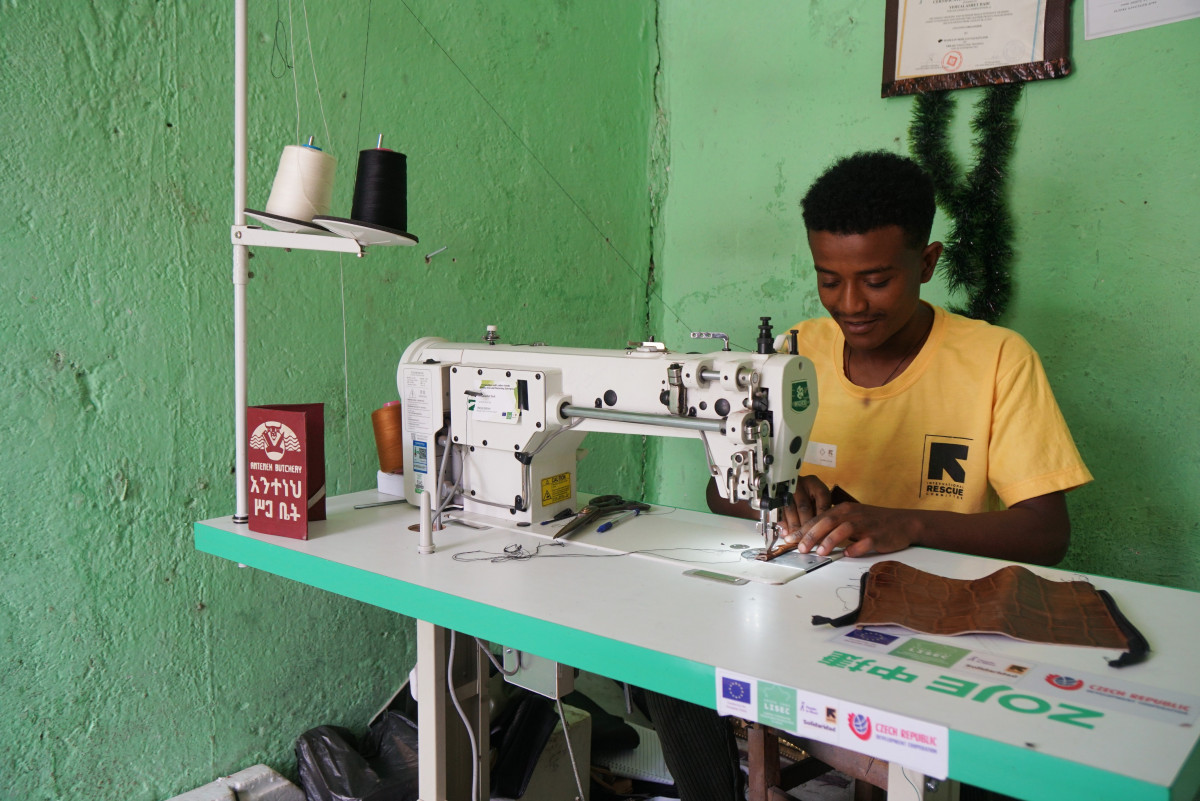As Durable as Leather: Providing decent, sustainable livelihoods in Ethiopia
Published: Jan 19, 2024 Reading time: 3 minutes Share: Share an articleEthiopia has one of the largest youth populations in Africa, most of whom are unemployed. Consequently, it is a tremendous struggle for young Ethiopians to find a viable career and earn a good living. Together with the European Union, People in Need (PIN) is supporting young Ethiopians like Yehuwalashet Dadi to upgrade his businesses in leather production, as Ethiopia has one of the leading livestock in Africa.

Yehuwalashet Dadi from Modjo, Ethiopia was unemployed. Until grade 10, he thought about what kind of job he could do Yehuwalashet aspired to study automotive engineering but could not follow his aspiration due to financial constraints and decided to try leather production. He joined the Modjo Technical and Vocational Education and Training (TVET) College. Yehuwalashet underwent a two-year footwear and design course. He then opened his own small shop in Modjo town.
After extensive exploration and assessment, Yehuwalashet Dadi discovered the potential that the leather market offers and he decided to join our short term footwear leather training course to improve his skills.
Thanks to our LISEC project, Yehuwalashet was admitted to take a short-term footwear design and production course. He confirmed that the impact of the training was immense. After the training, he excelled in his skill and hired someone to assist him. He aspired to purchase new machines within three years period. But, thanks to our support, he received three sewing machines, which helped him quickly meet his long-term goals.
Donating these machines increased his motivation, enabling him to scale up production and diversify designs. Now, he produces purses, belts and shoes based on the market demand and individual customers‘ choices.
In his small workshop and shop near the roadside, Yehuwalashet is working hard to increase his income, secure potential customers and expand his business to different cities. He also envisions creating job opportunities for unemployed youths despite the challenges of high prices for raw materials. Presently, he employs one woman in his shop.
The Leather Initiative for Sustainable Employment Creation (LISEC) project in Ethiopia is a three-year EU-funded Programme that works within the Emergency Trust Fund for Africa. The project is creating more significant and better economic and employment opportunities for young Ethiopians through the development of the Ethiopian leather industry. One of the project areas focuses on strengthening the capacity of Medium, Small and Micro Enterprises (MSMEs). The LISEC project gives hope and enthusiasm to young entrepreneurs like Yehuwalashet.
LISEC facilitates market linkages for MSMEs to encourage and increase their networks through participation in different exhibitions and events.
The LISEC project works with 42 MSMEs in the leather sector. It provides short-term training for 2531 youths to enhance their capacities and develop their businesses.


